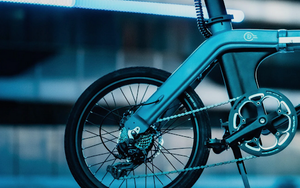Are Electric Mountain Bikes Cheating?
Nov 06, 2024
Electric mountain bikes have become a topic of heated debates among outdoor enthusiasts and cycling enthusiasts alike. With their rising popularity, many individuals are questioning the ethics and fairness of using these advanced bikes on traditional mountain biking trails. In this article, we will delve into the key considerations surrounding electric mountain bikes and explore whether they should be considered cheating, or if they are simply a new evolution in the sport.
Understanding Electric Mountain Bikes
Before we can assess whether electric mountain bikes are cheating, it is important to have a clear understanding of what they are and how they work. Essentially, electric mountain bikes, or e-MTBs, are bicycles equipped with a motor and a battery that provides assistance to the rider. This assistance can range from a slight boost in power to a substantial increase in speed, depending on the settings and capabilities of the bike.
The Mechanics of Electric Mountain Bikes
At the heart of every electric mountain bike is an electric motor, which is usually located near the pedals or within the rear wheel hub. When the rider pedals, sensors detect the motion and activate the motor, providing an additional push to the pedals. The amount of assistance can typically be adjusted using a control panel on the handlebars, allowing the rider to find the perfect balance between their own effort and the assistance provided by the motor.
Additionally, e-MTBs are equipped with a battery, usually mounted on the frame of the bike. This battery supplies power to the motor, allowing it to assist the rider over long distances or challenging terrains. The battery can be recharged by plugging it into a power source.
The Evolution of Electric Mountain Bikes
Electric mountain bikes have come a long way since their inception. Originally, e-MTBs were heavy and cumbersome, with limited range and unsophisticated motors. However, advancements in technology have allowed manufacturers to create lighter, more powerful bikes with extended battery life. For example, the Eleglide M1 Plus Electric Mountain Bike has a net weight of just 22.8kg.
Nowadays, electric mountain bikes are more similar to traditional mountain bikes in terms of weight and handling. With improved motors and battery systems, riders can enjoy longer rides and conquer challenging terrains that would have previously been out of reach.

The Debate: Traditional vs Electric Mountain Bikes
The debate surrounding electric mountain bikes revolves around the question of whether they provide an unfair advantage over traditional bikes. Let us explore the perspectives of both purists, who champion traditional mountain biking, and modernists, who embrace the advancements offered by e-MTBs.
The Purist's Perspective
For purists, mountain biking is all about the physical exertion and the thrill of conquering nature's obstacles with their own strength. To them, the use of an electric motor seems like cheating, as it diminishes the effort required to navigate trails and climb steep hills. They argue that traditional mountain biking should remain a pure test of physical ability and skills.
The Modernist's Viewpoint
On the other hand, modernists see electric mountain bikes as a natural progression in the sport. They argue that e-MTBs allow individuals with varying fitness levels to explore the trails and enjoy the experience of mountain biking. Electric assistance can level the playing field, enabling riders with less strength or physical limitations to participate in the sport. A recent survey found that nearly 40% of people in the UK said they would cycle more if they had an electric bike. Furthermore, modernists believe that the added speed and range provided by e-MTBs can enhance the overall adventure and exploration aspects of mountain biking. Another statistic from British Cycling shows that 39% of people surveyed said mental health was the biggest benefit of riding electric mountain bikes, supporting the argument that electric mountain bikes can only be a good thing.
The Impact of Electric Mountain Bikes on the Sport
The growing popularity of electric mountain bikes has undoubtedly had an impact on the sport. From changes in competition to effects on training and performance, let us explore the various ways e-MTBs have shaped the world of mountain biking.
Changes in Competition
With the introduction of electric mountain bikes, new categories have emerged in competitive mountain biking events. These categories allow e-MTB riders to compete against one another, separate from traditional mountain bike categories. This has opened up opportunities for riders who may have previously felt excluded from competitive events due to physical limitations.
Effects on Training and Performance
Training for mountain biking has also been influenced by the presence of electric mountain bikes. Some riders use e-MTBs to explore longer distances and more challenging trails, gradually building up their fitness and skills. Additionally, e-MTBs can be used as a tool for recovery, allowing riders to continue cycling without placing excessive strain on their bodies.
However, critics argue that the assistance provided by e-MTBs can lead to a decline in overall fitness levels among riders who rely solely on electric assistance. They suggest that riders should use e-MTBs as a complement to their training regimen rather than a substitute for traditional mountain biking.

Ethical Considerations of Using Electric Mountain Bikes
Beyond the debate of fairness and competition, electric mountain bikes also raise ethical considerations that warrant discussion. Let us explore two critical ethical aspects of using e-MTBs: the question of fairness and the environmental implications.
The Question of Fairness
One of the primary concerns surrounding electric mountain bikes is whether they provide an unfair advantage over traditional bikes. As mentioned earlier, the added assistance from an electric motor can enable riders to tackle steep climbs and challenging terrains with greater ease. This advantage can be perceived as unfair to riders who choose not to use e-MTBs, leading to potential inequalities in competition and on trails.
Environmental Implications
Alongside the question of fairness, electric mountain bikes raise environmental concerns. Traditional mountain biking has long emphasised the connection with nature and the low environmental impact of the sport. The introduction of electric motors, which require batteries and consume electricity, brings forth questions regarding the sustainability of the sport. Critics argue that the increased use of e-MTBs could lead to a greater strain on natural resources and detract from the eco-friendly ethos of mountain biking.
The Future of Mountain Biking: Electric or Not?
Looking ahead, the future of mountain biking remains uncertain. As technology continues to advance, electric mountain bikes are likely to become more powerful, efficient, and accessible. Let us briefly explore the potential technological advancements and the predicted trends in the world of mountain biking.
Technological Advancements and Their Potential Impact
Advancements in battery technology may allow for lighter and more efficient designs, extending the range and performance of electric mountain bikes. At the same time, improvements in motor technology may offer greater control and customisation options, further blurring the line between traditional and electric mountain bikes.
Predictions and Trends in Mountain Biking
Experts predict that the market for electric mountain bikes will continue to grow, as more individuals seek the benefits and enjoyment they offer. However, it is anticipated that traditional mountain biking will also endure, as enthusiasts crave the physical challenge and self-reliance it provides.

Conclusion
In conclusion, the question of whether electric mountain bikes are cheating is subjective and heavily dependent on individual perspectives and values. While purists argue that e-MTBs detract from the essence of traditional mountain biking, modernists emphasise their accessibility and enjoyment. As the sport evolves, it is essential for the community to engage in meaningful discussions about the impact of electric mountain bikes on competition, training, ethics, and the preservation of the environment.
Ultimately, the choice between electric and traditional mountain biking rests with each rider, allowing for a diverse and multifaceted sport that caters to various preferences and abilities.






